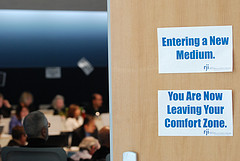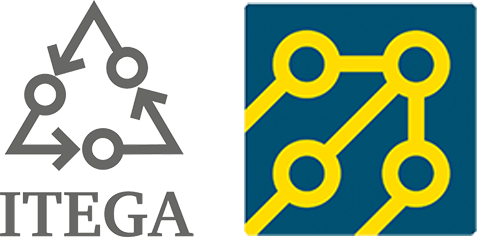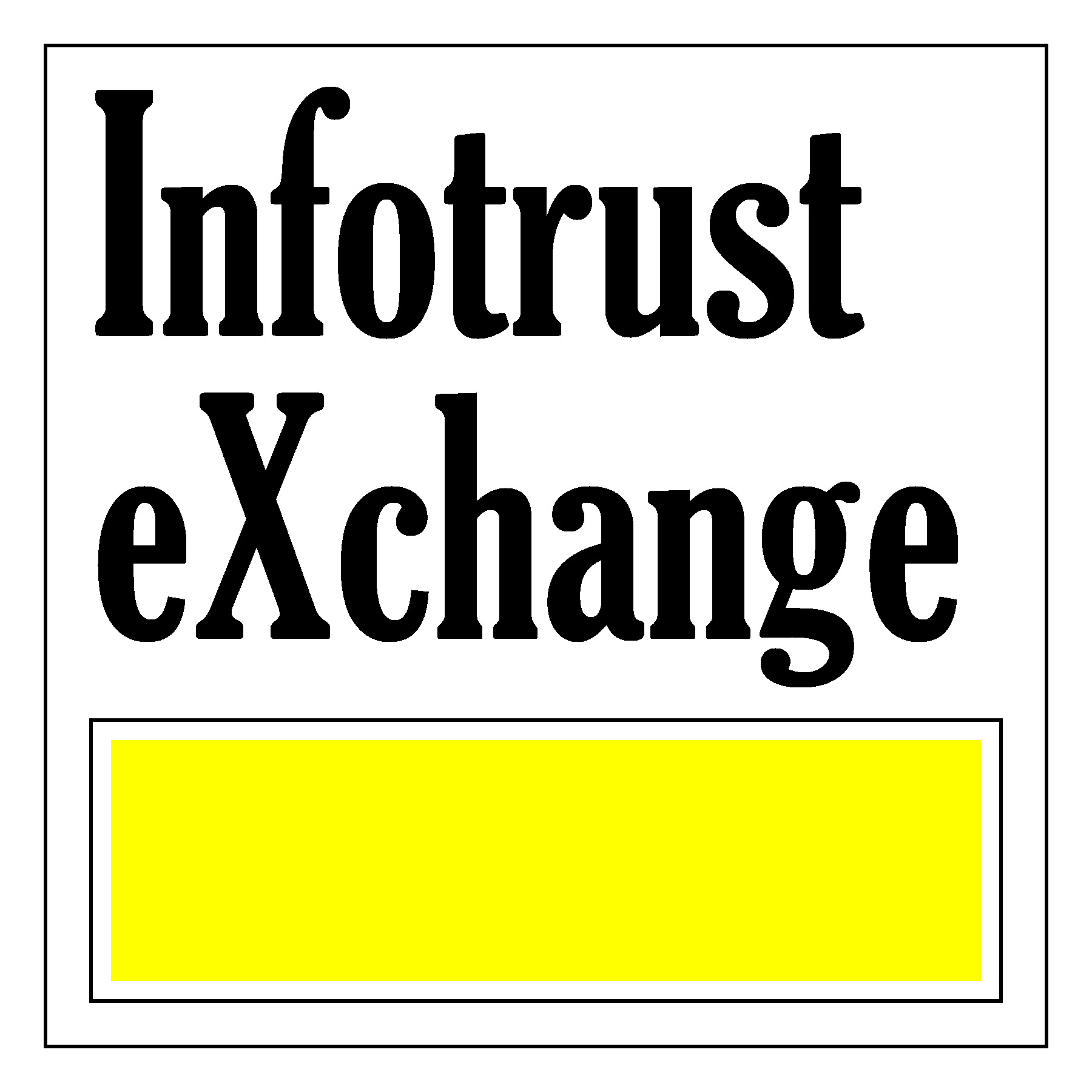The ITEGA — an idea honed over seven years by hundreds of collaborators
Board of Directors | Advisors and task-group members / Listening session invitees
As part of what was initially dubbed the “Information Valet Project” (video – 9 mins.) / (video – 15 mins.) / (story, Editor’s Weblog) / (story, ReadWrite) more than 300 people who share a passion for sustaining the values, principles and purpose of journalism have participated in interviews and discussions and attended or participated in more than a dozen task-focused meetings since 2008 — five during 2015.

- Work by 60 people began in December 2008 at the “Blueprinting the Information Valet Economy” gathering at the Reynolds Journalism Institute. (Participant list).
- On May 27, 2009, “From Gatekeeper to Information Valet: Work Plans for Sustaining Journalism,” at George Washington University, presented findings of RJI’s year-long Information Valet Project and introduced another 123 participants to the idea of a non-profit consortium for managing trust, identity, privacy and information commerce. (Participants).
 By June, 2010, a first effort, the American Newspaper Digital Access Corp. (ANDAC) was underway and RJI brought together 45 founders, tech architects and builders to discuss it. ANDAC, set up as a for-profit enterprise, foundered. (Who came)
By June, 2010, a first effort, the American Newspaper Digital Access Corp. (ANDAC) was underway and RJI brought together 45 founders, tech architects and builders to discuss it. ANDAC, set up as a for-profit enterprise, foundered. (Who came)
RJI’s August, 2011 report, “From Paper to Persona: Sustaining Journalism in the Attention Age,” called for formation of a non-profit collaborative to share technology, users and content, helping news organizations to find new revenues and become better at serving the public. At RJI’s “Pivot Point” workshop in Chicago, in June, 2012, 35 participants developed eight project ideas. One which emerged was Buzz Wurzer’s “New Networks Approach” — a precursor to the Information Trust Exchange idea. Read the convening purpose.
At RJI’s “Pivot Point” workshop in Chicago, in June, 2012, 35 participants developed eight project ideas. One which emerged was Buzz Wurzer’s “New Networks Approach” — a precursor to the Information Trust Exchange idea. Read the convening purpose.- In Sept., 2013, RJI convened “Five Years Past / Five Years Forward: Next Steps for Sustaining Journalism.” Meeting at Mizzou, more than 70 people were invited and came to consider journalism’s evolving means for engaging with communities, it’s increasing interdependence with network technologies, and what will underwrite journalism disconnected from mass-market advertising. Based on advice from the expert participants, RJI decided to focus its efforts on (1) an information-payments network which allows protocol and structure collaboration on identity, privacy and trust — supporting an open market and competition on prices and services; and (2) Exploring groundbreaking information personalization to meet the information needs of news and information users in a democracy.

-
In January, 2014, RJI convened an off-the-record “kitchen cabinet” conversation with 12 news-industry editors and strategists to collected updated thinking on how to address the new “attention-age” economy. One conclusion — a significant need for new research on the non-news information interests of millennials readers/viewers and experimentation with how to provide them with a personalized news/information experience that saves time and confusion. RJI commissioned study of personalization services, and asked two development-stage companies, Taxonometrics Inc. and Reportory, to experiment. - During 2014 and early 2015, RJI Fellow Bill Densmore interviewed more than 85 news- and information-industry scholars and practitioners for a sequence to the “Paper to Persona” report, authoring “From Persona to Payment.” Among those interviewed, 33 said they were willing to serve in a steering-committee role to help envision and plan an Information Trust Exchange.
- Following the release of the report, RJI invited 25 industry experts, many of them among those interviewed for “From Persona to Payment” to a May 7, 2015 roundtable discuss at the Chicago O’Hare Hilton and issued to the a call to action:
“The “Persona to Payment” report found no one ‐‐ including technologists ‐‐ who thought creating technology to achieve the objectives of a user- and content-sharing exchange is an unsurmoutable financial or engineering challenge. The challenge they see is how to identify and stick to an agreed mission and value propositions. In Chicago, on May 7, we’ll have a crack at it.”
- From the Chicago meeting, a set of next steps emerged — including a structure of four task groups, who met during September and October. To learn about their work, click on “WORK” below.


 About
About